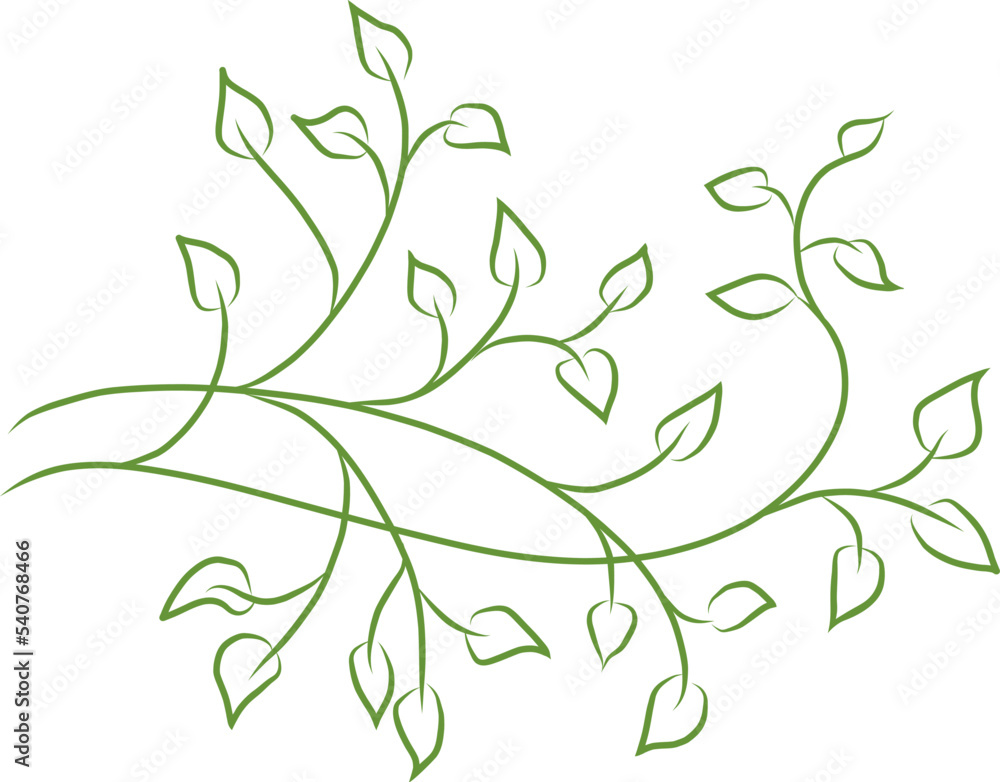Vine Lines: The Ultimate Guide To The Artistic Wonders
Ever wondered what makes vine lines so captivating? These delicate, intricate designs have taken the art world by storm, and it's time we deep-dive into their magic. Whether you're an artist, a designer, or just someone who appreciates beauty, vine lines are here to blow your mind. They're not just lines; they're stories etched in swirls and curves.
Vine lines are more than just a trend; they're a timeless expression of creativity. Imagine walking into a gallery and seeing a piece that feels alive, almost like it's breathing. That's the power of vine lines. From tattoos to digital art, these designs bring a sense of fluidity and elegance that’s hard to ignore. So, buckle up because we’re about to take you on a wild ride through the world of vine lines.
This article isn’t just another boring explanation of vine lines. We’re going to break it down in a way that’s fun, easy to digest, and packed with juicy details. Think of it as a chat with your art-loving friend who knows everything there is to know about vine lines. Let’s get started!
Read also:Dry Sense Of Humor Definition The Art Of Wit Without Effort
What Are Vine Lines? A Brief Overview
Alright, let’s get straight to the point. Vine lines are essentially intricate, flowing lines that mimic the natural curves of vines. They’re often used in various forms of art, from tattoos to illustrations, to create a sense of movement and life. These lines aren’t random; they’re carefully crafted to give the illusion of depth and dimension, almost like they’re growing right before your eyes.
What makes vine lines so special is their versatility. You can find them in everything from minimalist designs to complex, detailed masterpieces. They’re like the chameleon of the art world—adaptable, flexible, and always ready to surprise you. Whether you’re into botanical art or abstract designs, vine lines have something for everyone.
Why Are Vine Lines So Popular?
Let’s talk numbers for a sec. Vine lines have gained massive popularity over the past few years, with millions of artists and enthusiasts jumping on the bandwagon. Why? Because they’re freaking awesome, duh! But seriously, the rise of vine lines can be attributed to a few key factors:
- Visual Appeal: Vine lines are visually stunning. They add a touch of elegance and sophistication to any piece of art.
- Customization: Artists love them because they can be customized in countless ways. From color choices to line thickness, the possibilities are endless.
- Cultural Influence: With the growing appreciation for nature-inspired art, vine lines have become a symbol of harmony and balance.
It’s not just about aesthetics, though. Vine lines also carry symbolic meanings, which we’ll dive into later. For now, just know that they’re more than just pretty lines—they’re a statement.
The History Behind Vine Lines
Now that we’ve got the basics down, let’s take a trip back in time. Vine lines didn’t just pop out of nowhere. They have a rich history that dates back centuries. Ancient civilizations, like the Greeks and Romans, used similar designs in their architecture and pottery. Think about those intricate patterns on Greek vases—yep, that’s where it all started.
Fast forward to the Renaissance, and you’ll see vine-like designs in paintings and sculptures. Artists like Leonardo da Vinci were obsessed with capturing the natural world in their work, and vine lines were a big part of that. Even today, these designs continue to evolve, blending traditional techniques with modern technology.
Read also:Oliver Tree Age The Untold Story Of Musics Most Eccentric Artist
How Vine Lines Have Evolved Over Time
Here’s the thing: vine lines aren’t stuck in the past. They’ve adapted and grown with the times. In the digital age, artists are using software like Adobe Illustrator to create mind-blowing vine line designs. The level of detail and precision they can achieve is mind-blowing. Plus, with the rise of social media, vine lines have reached a global audience, inspiring countless creators around the world.
So, whether you’re sketching with a pencil or designing on a tablet, vine lines have something for everyone. It’s this adaptability that keeps them relevant and exciting.
Types of Vine Lines
Not all vine lines are created equal. There are different styles and techniques that artists use to create these designs. Let’s break them down:
Botanical Vine Lines
These are the classic vine lines inspired by nature. Think leaves, flowers, and stems intertwined in a seamless dance. Botanical vine lines are perfect for those who love organic, earthy designs. They’re often used in tattoos and wall art to bring a sense of calm and tranquility.
Abstract Vine Lines
For those who prefer something more daring, abstract vine lines are the way to go. These designs break the rules, combining sharp angles with flowing curves to create a unique visual experience. They’re like the rebellious cousin of botanical vine lines, and they’re gaining popularity fast.
Digital Vine Lines
With the rise of technology, digital vine lines have become a game-changer. Artists can now create intricate designs with just a few clicks. The best part? They can experiment with colors and textures in ways that weren’t possible before. Digital vine lines are all about pushing boundaries and exploring new possibilities.
Applications of Vine Lines in Art
Vine lines aren’t limited to one medium. They can be found in various forms of art, each with its own unique charm. Let’s take a look:
Tattoos
Who doesn’t love a good vine line tattoo? These designs are a favorite among tattoo enthusiasts because they’re versatile and meaningful. Whether you want a small, delicate piece or a large, intricate design, vine lines can be tailored to fit your style.
Illustrations
Illustrators love vine lines because they add depth and dimension to their work. From book covers to posters, these designs bring stories to life. They’re like the secret ingredient that makes illustrations pop.
Graphic Design
In the world of graphic design, vine lines are used to create eye-catching logos and branding elements. They add a touch of elegance and sophistication to any project, making them a favorite among designers.
Symbolism and Meaning Behind Vine Lines
Every line has a story to tell, and vine lines are no exception. These designs carry deep symbolic meanings that resonate with people on a personal level. Here are a few examples:
- Growth: Vine lines often represent growth and evolution, reminding us that change is a natural part of life.
- Connection: The intertwining nature of vine lines symbolizes connection and unity, whether it’s between people, ideas, or cultures.
- Balance: With their harmonious curves and flows, vine lines embody balance and harmony, encouraging us to find peace in chaos.
These meanings make vine lines more than just decorative elements; they’re powerful symbols that resonate with people on a deeper level.
How to Create Your Own Vine Lines
Ready to try your hand at vine lines? Here’s a step-by-step guide to get you started:
Step 1: Choose Your Medium
Decide whether you want to work digitally or traditionally. Both have their pros and cons, so pick what feels right for you. If you’re new to this, start with pencil and paper to get a feel for the lines before moving on to digital tools.
Step 2: Sketch Your Design
Begin with light, loose lines. Don’t worry about perfection at this stage; the goal is to get your ideas down on paper. Think about the flow and movement you want to create, and let your imagination run wild.
Step 3: Refine Your Lines
Once you have a basic sketch, go back and refine your lines. Add details like leaves or flowers if you’re going for a botanical look, or experiment with abstract shapes for a more modern feel. The key is to have fun and let your creativity shine.
Step 4: Add Color and Texture
This is where the magic happens. Use color and texture to bring your vine lines to life. Whether you’re working with watercolors or digital brushes, play around until you find the right combination that speaks to you.
Top Tips for Mastering Vine Lines
Creating vine lines isn’t always easy, but with practice, anyone can do it. Here are some tips to help you master this art form:
- Study Nature: Spend time observing plants and vines in real life. Pay attention to how they grow and move; this will give you valuable insights into creating realistic designs.
- Practice Consistency: Consistency is key when it comes to vine lines. Make sure your lines flow smoothly and evenly, without any abrupt changes in thickness or direction.
- Experiment: Don’t be afraid to try new things. Mix different styles, colors, and textures to see what works best for you.
Remember, practice makes perfect. The more you experiment, the better you’ll get at creating stunning vine line designs.
Common Mistakes to Avoid
Even the best artists make mistakes, and vine lines are no exception. Here are a few common pitfalls to watch out for:
- Overcomplicating: Sometimes less is more. Avoid overcrowding your design with too many elements; it can make it look messy and overwhelming.
- Inconsistent Lines: Uneven or jagged lines can ruin the flow of your design. Take your time and make sure each line is smooth and consistent.
- Ignoring Negative Space: Negative space is just as important as the lines themselves. Use it to create balance and add depth to your design.
By avoiding these mistakes, you’ll be well on your way to creating beautiful, professional-quality vine lines.
Conclusion: Why Vine Lines Matter
So there you have it, folks. Vine lines are more than just a trend; they’re a powerful form of expression that connects us to nature, art, and each other. Whether you’re an artist, a designer, or just someone who appreciates beauty, vine lines have something to offer everyone.
Now it’s your turn to take action. Grab your pencil, tablet, or whatever tools you prefer and start creating your own vine line designs. Share your work with the world, and don’t forget to leave a comment below letting us know how it went. And hey, if you liked this article, why not check out some of our other content? There’s always more to explore in the world of art!
Article Recommendations


